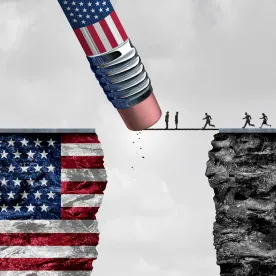Presidential Proclamation
On June 22, 2020, the White House announced an extension and expansion of Proclamation 10014, which was originally announced on April 22, 2020 and restricted the issuance of and entry on immigrant visas. The new visa ban expands the restrictions to certain non-immigrant categories.
Short Checklist Summary of the Visa Ban
-
Goes into effect on June 24, 2020 and will last to Dec 31, 2020.
-
Only applies to foreign nationals applying for new travel visas from overseas.
-
Doesn’t impact those who already have a travel visa in their passport.
-
Doesn’t immediately impact non-immigrant workers already in the U.S.
-
Restricted visas include:
-
H-1B
-
H-2B (other than food workers)
-
All J-1’s except scholars and students
-
All L-1’s (including L-1A executives and L-1B specialized knowledge workers)
-
-
There is an exemption for those that:
-
Are critical to the defense, law enforcement, diplomacy, or national security of the United States;
-
Are involved with the provision of medical care to individuals who have contracted COVID-19 and are currently hospitalized;
-
Are involved with the provision of medical research at United States facilities to help the United States combat COVID-19;
-
Or are necessary to facilitate the immediate and continued economic recovery of the United States.
-
-
It also does not apply to:
-
Lawful permanent residents (green card holders);
-
Spouses or children of U.S. citizens;
-
Workers providing essential services for the U.S. food supply chain;
-
Anyone whose entry is determined by the State Department or DHS to be in the national interest.
-
-
Possible Future H-1B Labor Market Test: There is language directing DHS and DOL to explore rule-making to re-define H-1B specialty occupation to better protect U.S. workers. This would take at least several months to do. In addition, it will likely be challenged in the Courts on the basis that Congress already defined H-1B specialty occupation in the Immigration & Nationality Act and Congress would need to make those changes.
-
Reviewing the Basis of Granting Employer Sponsored Permanent Residency: There is also language in the Proclamation directing DOL and DHS to review some of the employment-based permanent residency programs to further ensure that they do not adversely impact U.S. workers. This would include individuals who receive green cards based on PERM labor certifications in the employment-based 2nd preference with an advanced degree (EB2) and in the employment-based 3rd preference with a college degree (EB3).
COVID-19 Travel Ban
It should be noted that, at this time, there are other travel bans not related to non-immigrant visa restrictions. The most notable is the complete ban on inbound travel from Europe as well as several other countries around the world. In addition, all U.S. Embassies and Consulates are currently closed for visa applications.
Guidance on Visas, I-94, and Travel
Sheppard Mullin reminds employers and foreign national employees of the following guidance:
-
Make sure you understand the difference between a visa and an I-94, and what each one does.
-
The visa is in a passport and issued by the U.S. Consulate abroad and is used to travel and enter the U.S.
-
The visa doesn’t control a period of stay in the U.S.
-
The visa expiration date is the last day to enter the U.S.
-
-
The I-94 is issued at the Port of Entry by S. Customs and Border Protection (CBP) or by U.S. Citizenship and Immigration Services (USCIS) for a change of status or extension of status by issuing an I-797 approval notice with an I-94.
-
The I-94 expiration date controls the last day to stay in the US or to file a change of status or extension of status with USCIS.
-
-
The I-94 can be printed online from CBP.
-
S. Consulates frequently issue travel visas that have a validity that extends beyond the validity of the petition issued by USCIS. Caution must be taken to make sure that one’s petition and I-94 validity are valid at all times.







 />i
/>i
